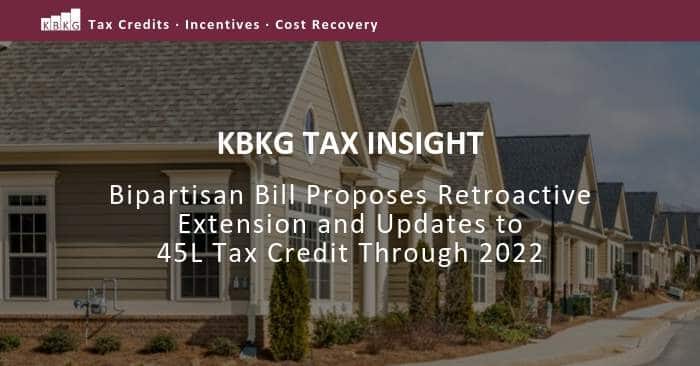Senators Maggie Hassan (D-NH) and Susan Collins (R-ME), as well as United States Representatives Jimmy Gomez (D-CA) and Mike Kelly (R-PA), introduced the bipartisan New Home Energy Efficiency Act to extend the 45L Tax Credit. The bill proposes to retroactively extend the $2,000 credit per home from 2018 through 2020. Additionally, starting in 2021, the tax credit would introduce more stringent energy efficiency requirements and increase the tax credit from $2,000 to $2,500 per qualified home or apartment unit.
The 45L tax credit has been an important part of the tax code since 2006. Over the years it has been extended numerous times and made more stringent only to recently expire at the end of 2017. This legislation would continue to incentivize homebuilders and multifamily developers to continue to invest in building more energy efficient homes and apartment units by providing much-needed certainty as they make construction decisions on a go-forward basis.
While the tax credit will continue to have the same benefit and adhere to the same criteria set in place at the end of 2017, the legislation looks to modify the tax credit starting in 2021. With the credit being increased to $2,500 in 2021 and 2022, a new set of energy efficiency standards were proposed to demonstrate energy savings to qualify for tax credits. One approach will rely on an update to the heating and cooling efficiency standard whereas the other will rely on a new, whole home energy efficiency standard.
The bill was developed with the support of over 35 organizations and businesses, including but not limited to the Alliance to Save Energy, National Resources Defense Council, the U.S. Green Building Council, the American Council for an Energy-Efficient Economy, the National Association of Home Builders, and the National Multifamily Housing Council. Additionally, it’s a positive signal to see bipartisan support from both members of the House Ways and Means Committee and the Senate Finance Committee.
KBKG Insight – With the introduction of this bill and many in Congress looking to extend this and other tax extenders, it appears that a stage has been set for a possible year-end tax package that would address extenders. Once the legislation has been passed, taxpayers should consider amending 2018 tax returns to take advantage of any missed tax credits retroactively.
With the ever-changing landscape, KBKG’s team of experts can help navigate how to prepare in the coming months to ensure all available credits are claimed in the past, present, and future. To find out more about the 45L tax credit and how it impacts you, please contact us.
The New Home Energy Efficiency Act can be viewed here.
Author: CJ Aberin, CCSP


